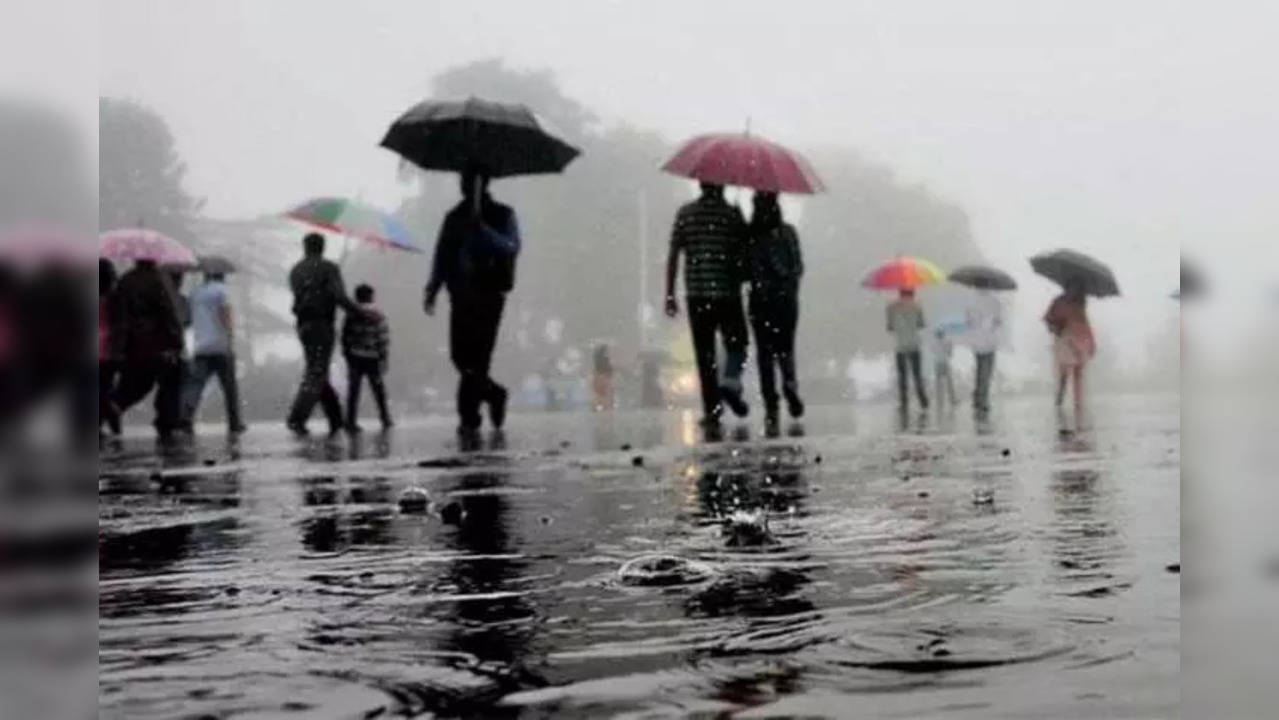Monsoon withdraws from Delhi but rain likely in some parts of the city next week
The IMD announced the monsoon withdrawal from the capital on Thursday, marking the end of Delhi's monsoon season. Nevertheless, rain may still fall in the city shortly as a low-pressure system in the Bay of Bengal is predicted to deliver stormy weather

Representative Image
Photo : PTI
New Delhi: The IMD announced the monsoon withdrawal from the capital on Thursday, marking the end of Delhi's monsoon season. Nevertheless, rain may still fall in the city shortly as a low-pressure system in the Bay of Bengal is predicted to deliver stormy weather to the area between October 3 and 6, according to Kushagra Dixit.
The monsoon withdrew four days after IMD's "usual" September 25 departure from Delhi. With a total 19% shortfall since June 1, the season of very erratic rainfall in Delhi came to an end, just falling within the "normal" range of a 20% departure (plus or minus) from the long-term average. Delhi had a considerable shortage up until September 15 of about 39%, which dramatically decreased after five to six days of nonstop rain starting on September 19.
Only two days of severe rain were recorded in Delhi between the entrance of the monsoon on June 30 and its departure on Thursday at its primary meteorological station, Safdarjung.
"The southwest monsoon has withdrawn from Delhi, Punjab, and Chandigarh and parts of Jammu and Kashmir, Himachal Pradesh, west Uttar Pradesh, Haryana, and Rajasthan, At Delhi's main meteorological station, Safdarjung, between the monsoon's arrival on June 30 and its departure on Thursday, just two days of exceptionally heavy rain were recorded.
IMD officials said they were monitoring the movement of the low-pressure system. "We will be in a better position to say how much impact it will have in northwest India around October 1-2. There are, however, chances of a western disturbance leading to the incursion of moisture from the Arabian sea, which will bring in easterly winds," said R K Jenamani, senior IMD scientist.
Trending:
End of Article
Subscribe to our daily Newsletter!
Related News





Delhi: Body Of Man Found Hanging From Under-Construction Flyover

'Look Between Q & R:' Why Delhi Police's Challan Warning Is Trending

Delhi's Pragati Maidan Tunnel Still A 'Potential Threat To Lives' Despite Renovation | What's Missing?

Delhi: 12-Year-Old Boy Dies from Electrocution After Sudden Heavy Rains

Protesting Tamil Nadu Farmers Climb Mobile Tower in Delhi, Demanding Profitable Prices For Crops| VIDEO









